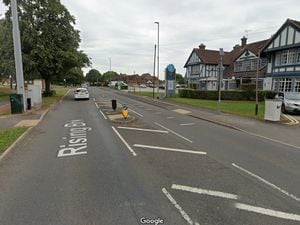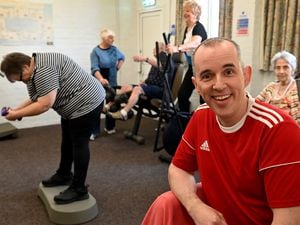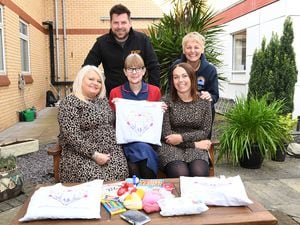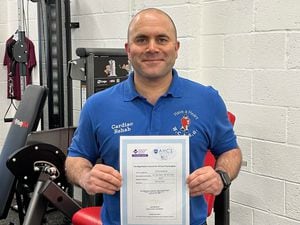Biggest cancer killer of under 40s - brain tumours - under spotlight for awareness week
About 45 people a day in the UK face a brain tumour diagnosis.

The devastating disease comes with its own unique challenges and kills more children and adults under the age of 40 than any other type of cancer.
Yet, it is allocated just one per cent of the national spend on cancer research.
The need for a special response and increased research effort has come under the spotlight during International Brain Tumour Awareness Week.
Some of those diagnosed in Shropshire have even gone to the lengths of raising their own funding for advanced treatment privately as it has been unavailable to them on the NHS.
Earlier this year, communities rallied round 26-year-old Christel Callow, from Shifnal, raising more than £70,000 so she could have proton beam therapy.
Christel was diagnosed with a rare form of cancer called anaplastic astrocytoma.
However, she was two years past the age limit set by the NHS to receive proton beam therapy, despite it being the most effective form of treatment.
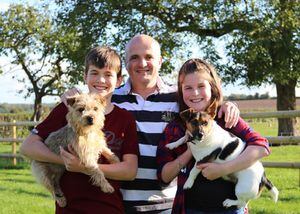
And Nick Haves from Sheriffhales, who was diagnosed with a brain tumour just weeks ago, says it was a chance meeting with one of Christel's relatives that inspired his family to launch their own fundraising campaign.
"It was because of meeting her family that we went down that route," the father-of-two said.
"Her auntie was at Beckbury Show, we got talking and she said I had to do it."
After being told that his brain tumour was caused by cranial radiotherapy he received for leukaemia, the 46-year-old was keen to avoid the more conventional, less targeted-type of radiotherapy he could get on the NHS.
Last week he hit his £59,000 fundraising goal and will start proton beam therapy – a form of targeted radiotherapy – in South Wales in November.
He says the campaign had also helped to bring the community together.
"It's really quite surreal how fast it happened," Nick said.
"It's just been amazing how much support I've had and I want to thank everyone.
"Where we live is a fantastic place. There's such a huge community spirit.
"People in the village where I live say they want to keep the momentum up with getting people together. It's very empowering."
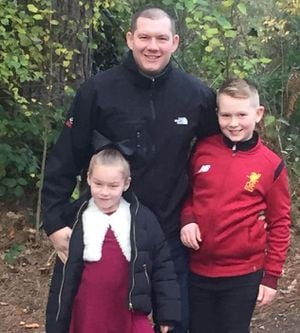
Matt Harvey, 33, of Great Haywood, has also shared his story to raise awareness of the disease.
A routine eye test in 2014 resulted in him being sent to hospital for rapid diagnostic tests, which revealed a brain tumour.
The father-of-two was diagnosed with a grade two diffuse anaplastic astrocytoma and underwent his first brain surgery, to debulk the tumour, in February 2014 at University Hospital Birmingham.
“It was a difficult time for all of us, especially afterwards when I was put on heavy-duty steroids to reduce and prevent inflammation inside my brain. I put a lot of weight on and my personality changed," he said.

By 2017 Matt was being monitored with annual MRI scans and life was beginning to return to normal, when medics found the tumour had grown back and was now a grade three glial tumour.
Following another operation, radiotherapy and chemotherapy, last Christmas he was told the tumour had grown back and he needed another awake craniotomy.
Matt said: “I felt more apprehensive going in for awake surgery this time, knowing what to expect. It was tougher than the last one as I had to lie on my side. The side effects were worse too; I still can’t feel my legs properly and suffer from tingling sensations, like pins and needles.
“On the plus side, my neurosurgeon Ms Albanese, said the surgery went really well; she succeeded in removing the majority of the tumour.”
He is now on another course of chemotherapy, to treat the residual tumour, but he is working with the Brain Tumour Research charity to raise awareness of the condition.
Charity Brain Tumour Support also runs support groups across the country, including at Aldridge Social Club; The Chubb Building, in Fryer Street, Wolverhampton and at Royal Shrewsbury Hospital.

Kieran Widdowson, of Walsall, is one of its ambassadors and earlier this year attended a Buckingham Palace Garden Party after the charity won the Queen’s Award for Voluntary Service.
After experiencing painful headaches, he was diagnosed with a malignant brain tumour at the age of 17 and has since had more than 30 operations on his brain.
He now helps organise the Walsall brain tumour social group.
"Following my diagnosis back in 2007 I felt I was trapped in a very isolated world and for three years got through thanks to the support of my mum and close family," Kieran said.
"Then when we found the charity in 2010 it really allowed my life to change for the better. Brain Tumour Support listened to my story and they gave me the option to start supporting others who have been diagnosed with a brain tumour through volunteering."
The charity has also launched a Christmas fundraising campaign.

